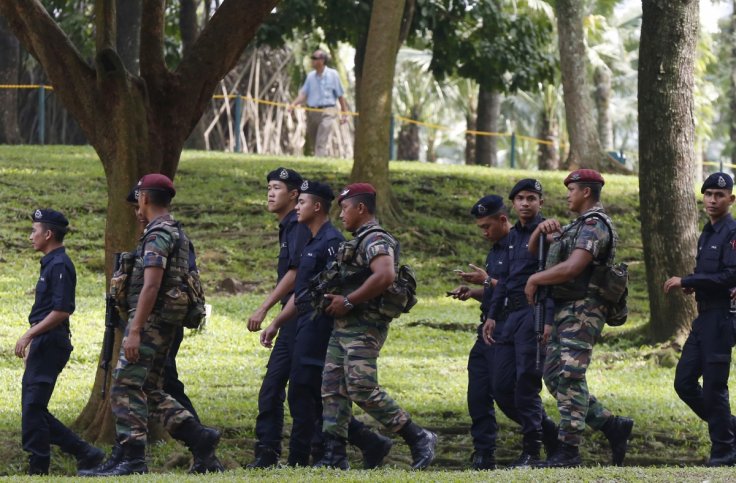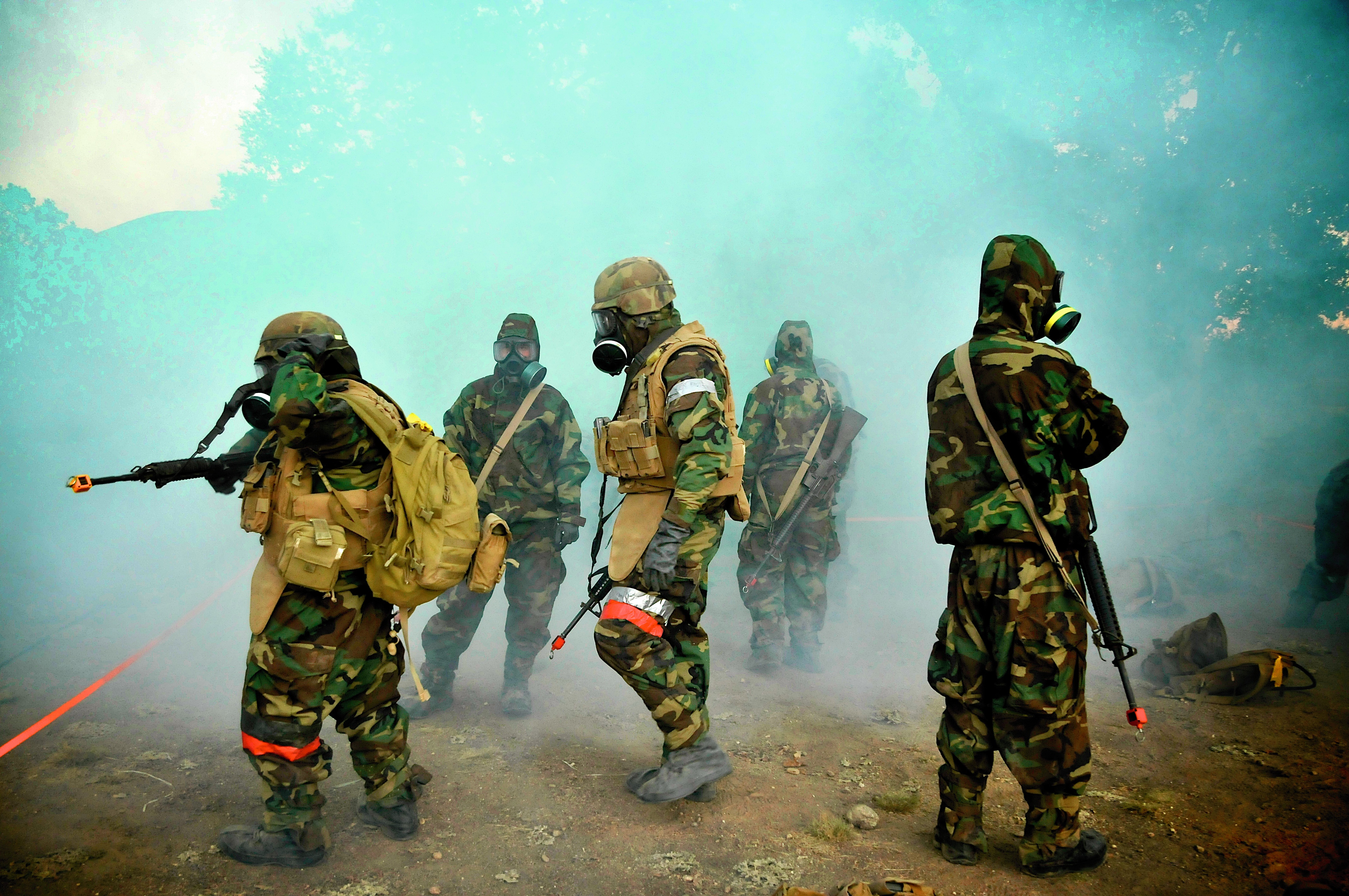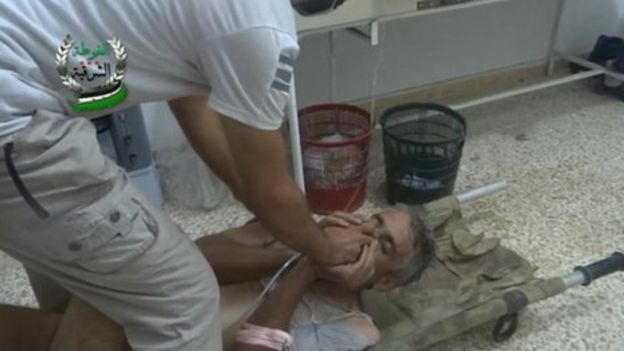Malaysian Police Ready To Face Anthrax Or Sarin Gas Attacks From Terrorists, Says DPM
Malaysia has never faced any biological attacks, to date.
Deputy Prime Minister Ahmad Zahid Hamidi today, 21 March, informed that the Malaysian police is on standby, should the country face any biological attacks in the future
A biological attack is classified as the intentional release of disease causing agents or poisonous substances against humans, plants or animals.
"For now, no threat of attack (using biological weapons) has been detected from the militant groups, which are viewed as not having the expertise to carry out such attacks," explained the DPM, as reported by the Malaysiakini
However, Deputy Prime Minister Dato' Seri Dr. Ahmad Zahid Hamidi, did not explain on the specific safety measures and the exact level of preparedness, should we face any attacks in the future
This alarming topic was raised by BN Kota Tinggi's Noor Ehsanuddin Mohd Harun Rashid who questioned the government's readiness to face these attacks from militant groups
On 25 January, Prime Minister Najib Razak stressed on the seriousness of ISIS threats in Malaysia, following the increasing number of arrests related to the militant group
Malaysia Prime Minister Najib Razak has warned that the Islamic State's threat against the country was very real. He said that Malaysia was far from immune from the Isis threat.
On Sunday, 24 January, Malaysia police announced that they had arrested seven members of an Isis or Daesh cell who they believe were planning attacks across the country. The suspected militants were carrying bullets, books on jihad, Isis flags and propaganda videos.
Ten days ago, Malaysia police arrested a suspected militant believed to have been planning a suicide attack in Kuala Lumpur. In addition, three Malaysia trying to enter Syria to join Isis were arrested this month, the prime minister said.
"This threat is very real and my government takes it very seriously", Najib said at a conference on extremism. "This is a challenge that faces us all around the world. We are far from immune to this danger in Malaysia."
How dangerous is a bioterrorism attack?
As explained previously, a bioterrorism attack is the deliberate viruses, bacteria and other harmful agents.
According to the United States's Centers for Disease Control and Prevention, these harmful agents can be mutated or altered to increase their ability to cause harm and be more resistant to current medicines, thus making it almost impossible to cure, most often.
A piece written by Joel R. Kramer on the Harvard Crimson, explains that chemical and biological weapons have the potential to be way more dangerous than the traditional military armaments.
"A chemical weapon works like an insecticide, except that chemicals may range from only temporarily debilitating to lethal. Biological weaponry works like any disease."
"In addition to ranging from non-lethal to lethal, a biological weapon can also be non-contagious or contagious. A contagious weapon could even kill people who were not in the original target zone, since the germs could spread to other areas," read the article titled 'Scientists Consider, And Act On, Dangers of Biological Warfare'.
The CDC categorises these bioterrorism agents into three separate categories, based on its severity, namely:
Category A- These high-priority agents include organisms or toxins that pose the highest risk to the public and national security because:
- They can be easily spread or transmitted from person to person.
- They result in high death rates and have the potential for major public health impact.
- They might cause public panic and social disruption.
- They require special action for public health preparedness.
Category B- These agents are the second highest priority because:
- They are moderately easy to spread.
- They result in moderate illness rates and low death rates.
- They require specific enhancements of CDC's laboratory capacity and enhanced disease monitoring.
Category C- These third highest priority agents include emerging pathogens that could be engineered for mass spread in the future because:
- They are easily available.
- They are easily produced and spread.
- They have potential for high morbidity and mortality rates and major health impact.
In 2013, war-torn Syria faced a terrible chemical-weapon attack that left more than 1,400 dead
A team of UN chemical weapons inspectors have confirmed that the nerve agent sarin was used in an attack on the Ghouta agricultural belt around Damascus on the morning of 21 August.
The first reported use of chemical weapons came at 02:45 local time on 21 August in Ein Tarma, in about 6km (3.7 miles) east of the centre of Damascus, and again at 02:47 in Zamalka, an adjoining district.
Within hours, dozens of videos were uploaded of large numbers of distressed and visibly sick adults and children with no external signs of injury. In some of the most graphic footage, dozens of bodies, including many small children and babies, were seen laid out in rows on the floors of clinics and mosques, and on streets in Muadhamiya, Ein Tarma, Zamalka and nearby areas.
The victims' symptoms - seen in the videos and described by medics - were consistent with exposure to a nerve agent, including shortness of breath, disorientation, runny nose, eye irritation, blurred vision, nausea, vomiting, general weakness, and eventual loss of consciousness.






